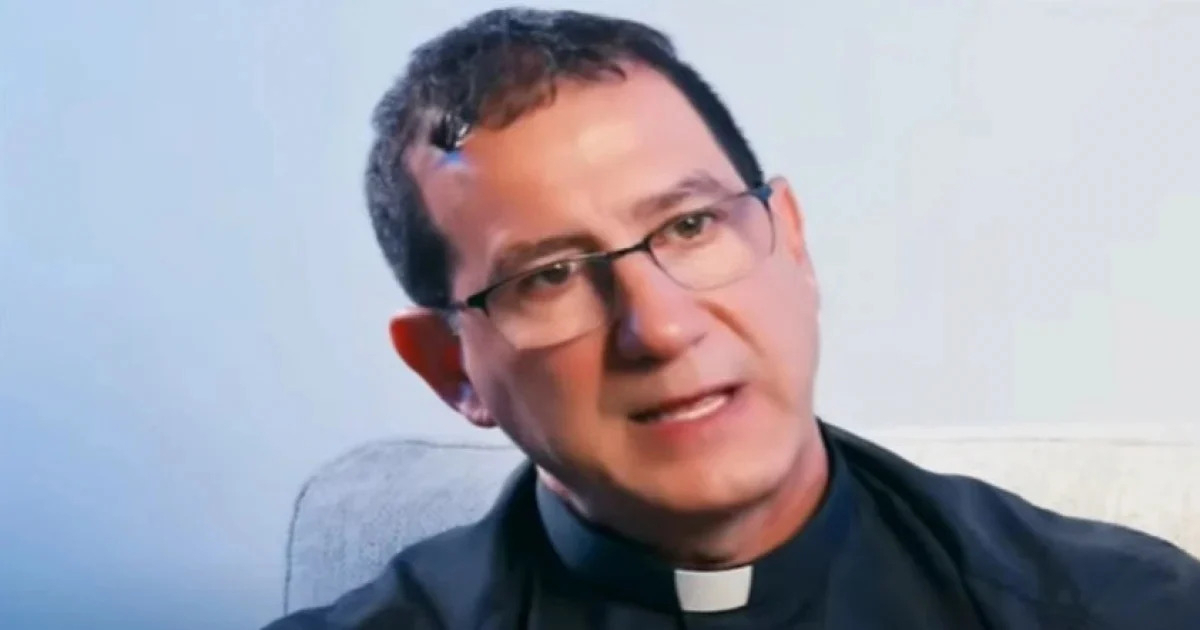
Related videos:
The Cuban priest Alberto Reyes, a fervent critic of the dictatorship, questioned the release of 553 prisoners undertaken by the government following negotiations with the United States mediated by the Vatican.
In a reflection published on Facebook, he stated that while he is pleased about the release of those 553 individuals, he believes the regime is "blackmailing" by using them as bargaining chips, and he is concerned about what will happen to them: whether they will be pressured to leave Cuba, if they will be able to reintegrate peacefully into society, or if they will be made to have a difficult life.
Reyes, from the Diocese of Camagüey, also criticizes that not all political prisoners have been released.
It also raises the question of what will happen when there are more protests and whether this process of releasing prisoners is merely to empty some cells that will soon be filled again when the people take to the streets once more.
Next, CiberCuba shares the complete text of the post.
I have been thinking… (XCVIII) by Alberto Reyes Pías
I have been thinking about the dirty mechanisms of manipulation
No puedo evitar sentirme sumergido en eso que llamamos 'sentimientos encontrados'. Por una parte, mi espíritu se alegra inmensamente por la excarcelación de parte de nuestros presos políticos, pero por otra, el verlos treated roughly as bargaining chips in favor of the continuity of evil hace que surja lo peor de mí.
Para empezar, el encarcelamiento por motivos políticos es una violación de la libertad personal de los individuos. De hecho, There shouldn't be political prisoners, pero usarlos como mercancía es no reconocer no sólo su derecho a la libertad de expresión sino su propia dignidad, su propio valor como personas.
Por otra parte, What will happen to those who will not be released? If this truly reflects 'a gesture of good will,' why is the same not done for everyone?
Me pregunto además, What will happen to those who have left? Will they be forced to leave the country, whether they want to or not? Will they be allowed to reintegrate peacefully into society, or will their lives be made miserable?
Y When there are more and more protests, what will happen? ¿Es que la excarcelación de estas personas es, además de un chantaje, la desocupación de unas celdas que pronto serán rellenadas? Porque This town, sooner or later, will have to take to the streets, si no a pedir un cambio de sistema, al menos a reclamar otra vida.
Ahora bien, más allá de la noticia de aquellos que podrán volver a sus casas, de la salida de Cuba de la lista de países patrocinadores del terrorismo, y de las concesiones hechas al gobierno cubano, no podemos dejar de mirar lasdeep solutions are needed that depend on internal decisions and have nothing to do with the United States.
Porque It is up to this government to recognize the right of citizens to publicly express their opinions, incluso si dentro de esos criterios está su deseo de un cambio de sistema.
Toca a este gobierno stop repressing and exercising violence against those who choose to protest peacefully por cualquier medio.
Toca a este gobierno recognize the right of this people to political diversity, al sano pluripartidismo, y a la posibilidad de definir en las urnas el sistema político que se prefiera elegir.
It is up to this government to allow this people to exist, to establish a state of law that enables the ordinary citizen to stop being vulnerable and defenseless against the whims of power. It is the responsibility of this government to respect the voice of the people and to stop ignoring and excluding them from decisions about the present and future of this country.
And it falls to us, each from our own place, to reclaim time and again what rightfully belongs to us, what no one should have ever taken from us".
Frequently Asked Questions about Alberto Reyes' Critique of the Cuban Regime and the Release of Prisoners
Why does Alberto Reyes criticize the release of prisoners in Cuba?
Alberto Reyes criticizes the release of prisoners because he believes that the Cuban regime uses them as bargaining chips in international negotiations, without respecting their dignity or right to freedom. He questions why not all political prisoners are released and fears that this measure is merely a "gesture of goodwill" to free up cells that will soon be filled again.
What will happen to the prisoners who have been released, according to Alberto Reyes?
Alberto Reyes wonders whether the released prisoners will be forced to leave the country or if they will be able to reintegrate peacefully into Cuban society. He also fears that the regime may make their lives difficult, reflecting his distrust of the intentions of the Cuban government.
What is Reyes's critique of the Cuban regime's use of political prisoners?
Reyes criticizes the Cuban regime for using political prisoners as instruments of manipulation, pointing out that their imprisonment is a violation of human rights and a means of blackmail to maintain power. He emphasizes that this practice shows a lack of respect for freedom of expression and human dignity.
What does Alberto Reyes propose to address the political situation in Cuba?
Alberto Reyes advocates for a change in Cuba that allows for freedom of expression and respect for human rights. He urges the government to recognize the citizens' right to peacefully protest and to establish a pluralistic political system that reflects the will of the Cuban people.
Filed under: